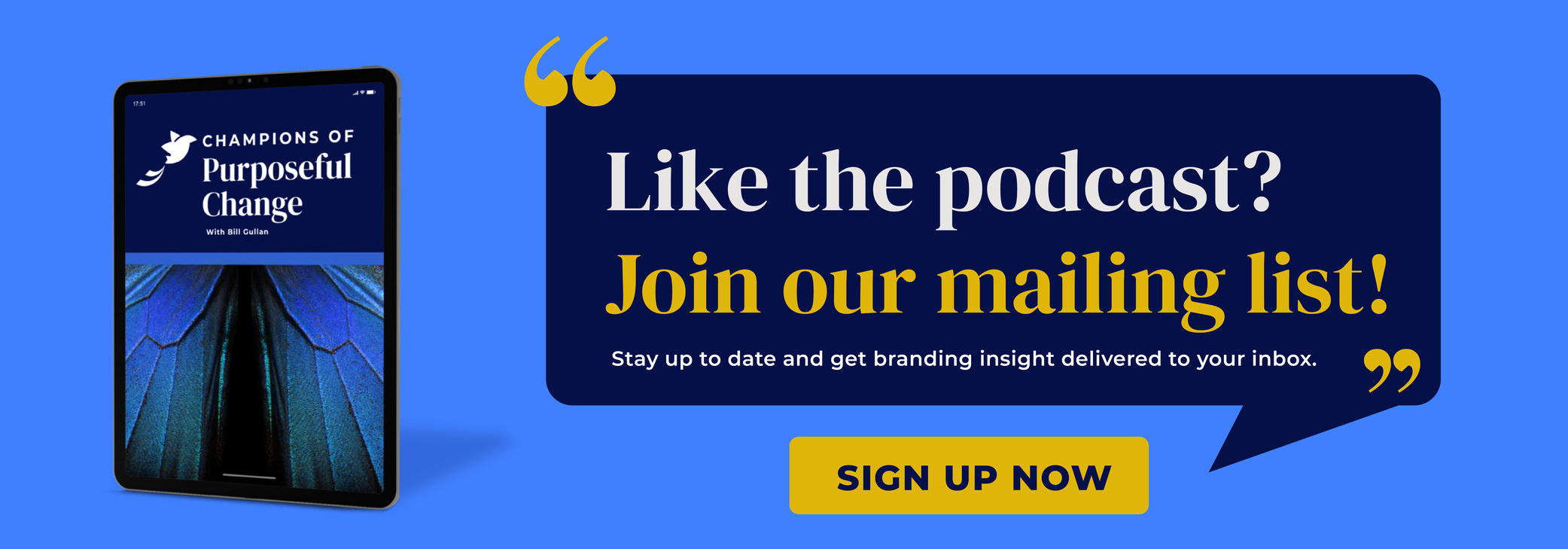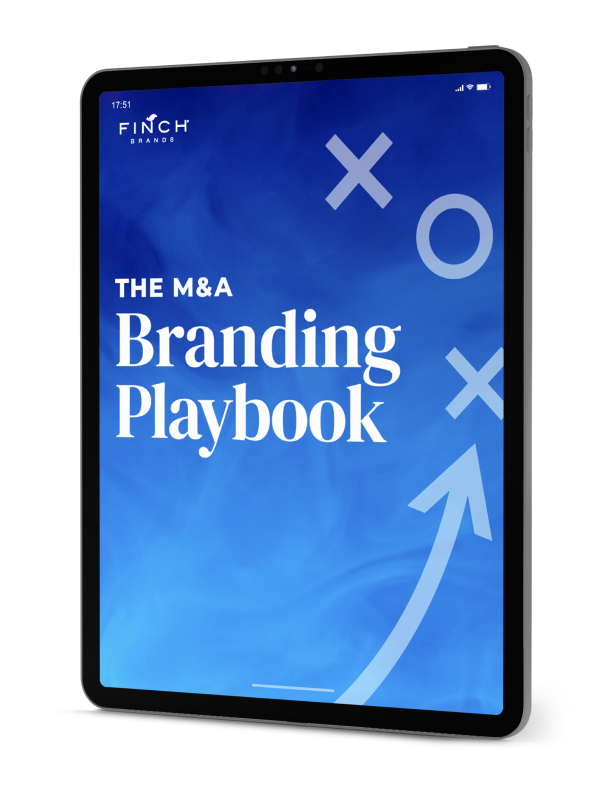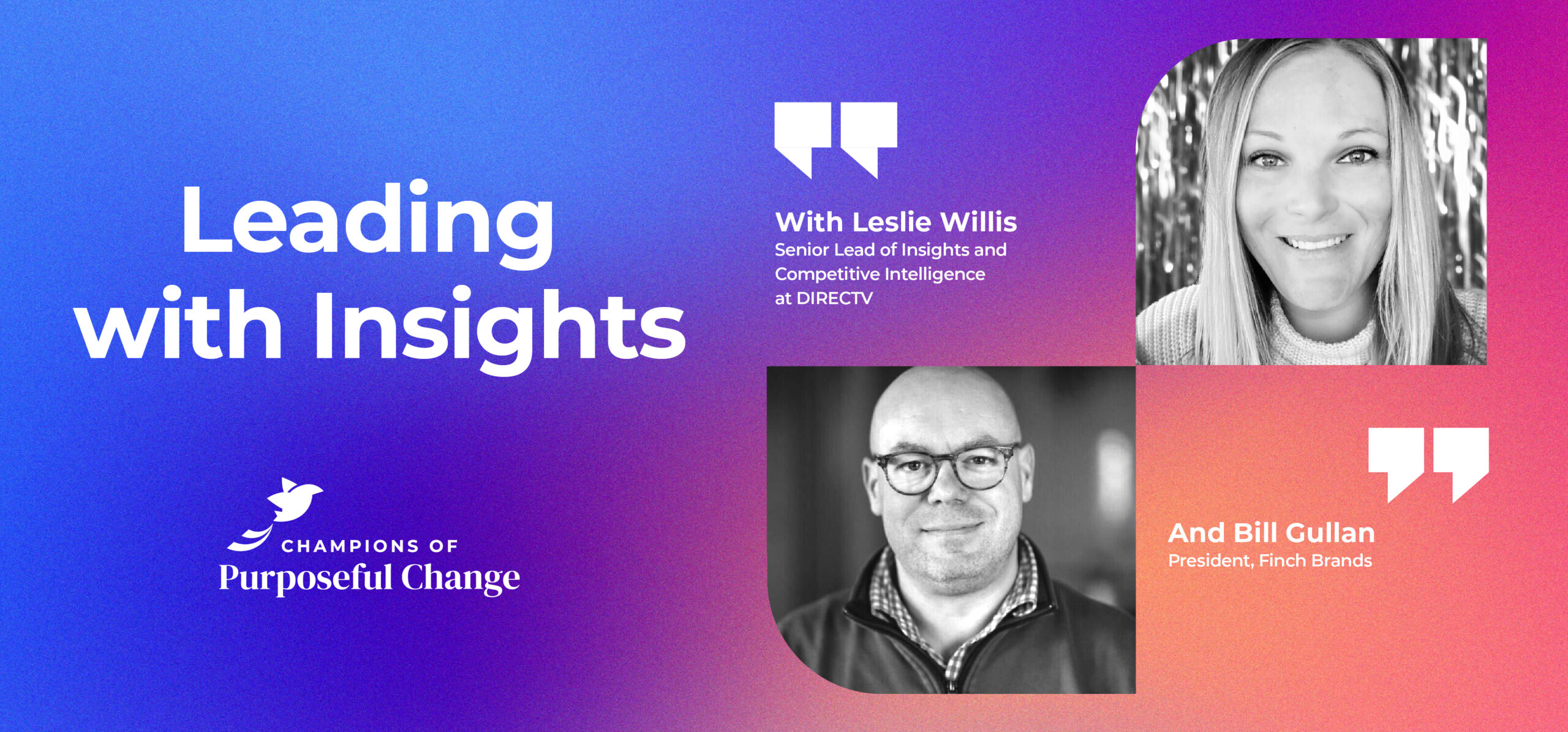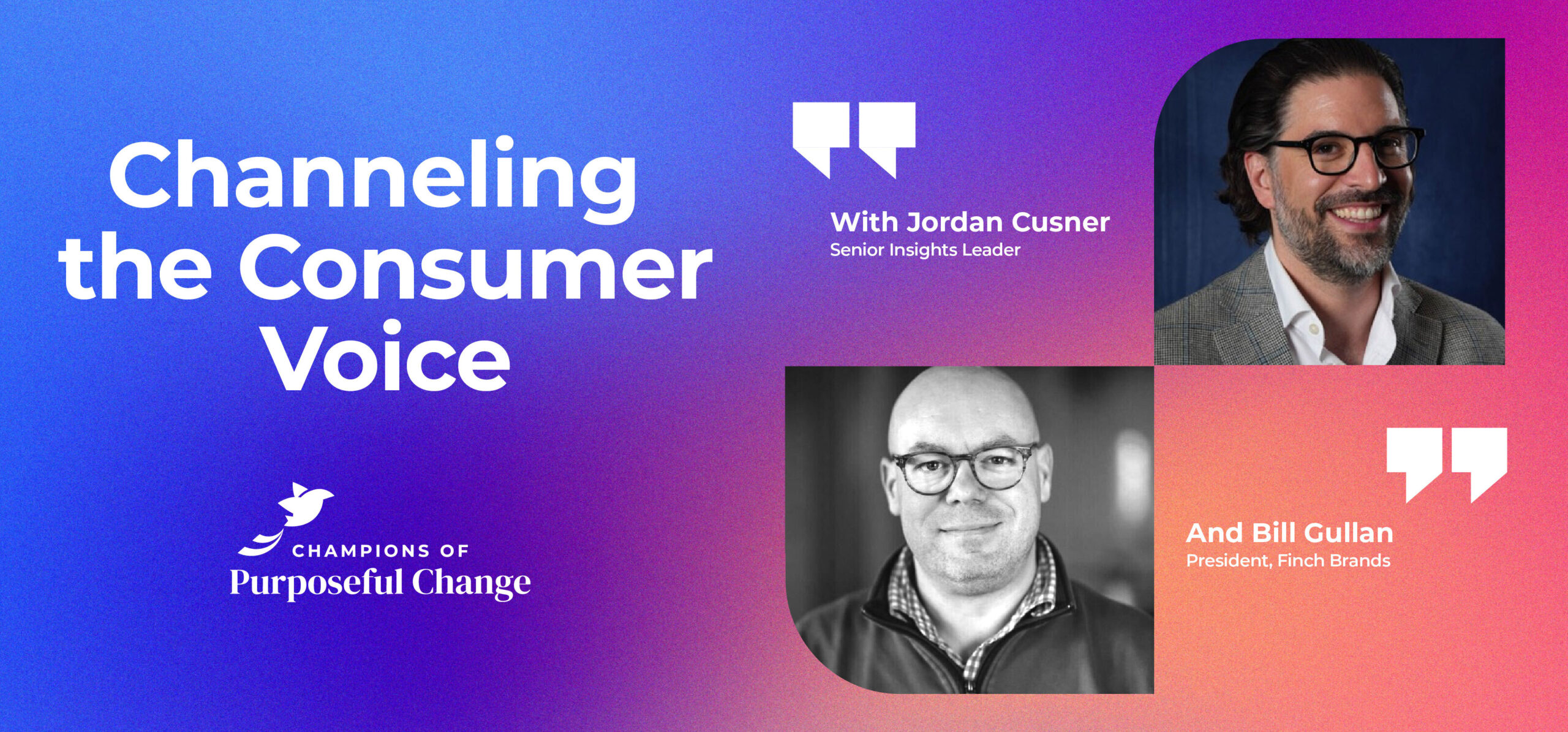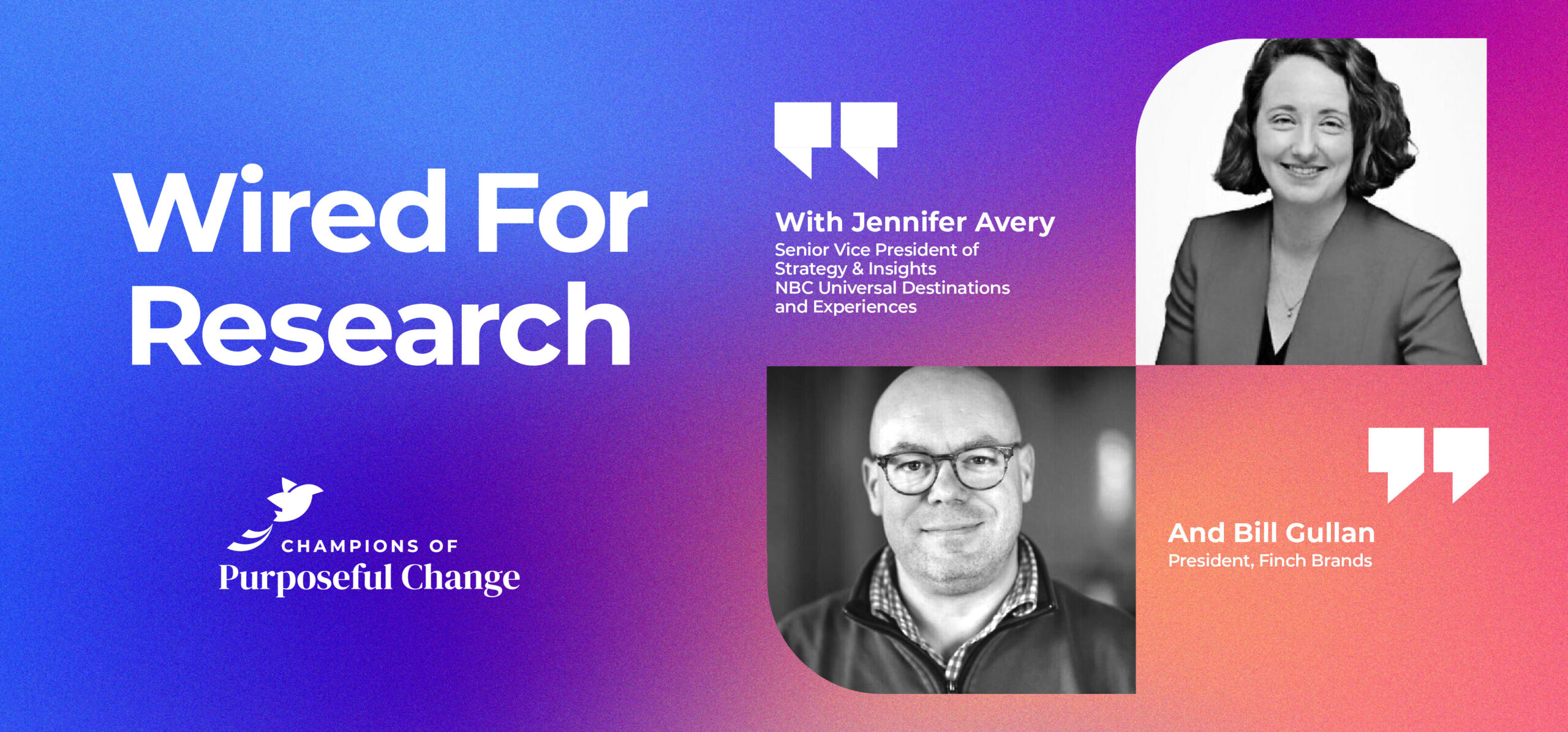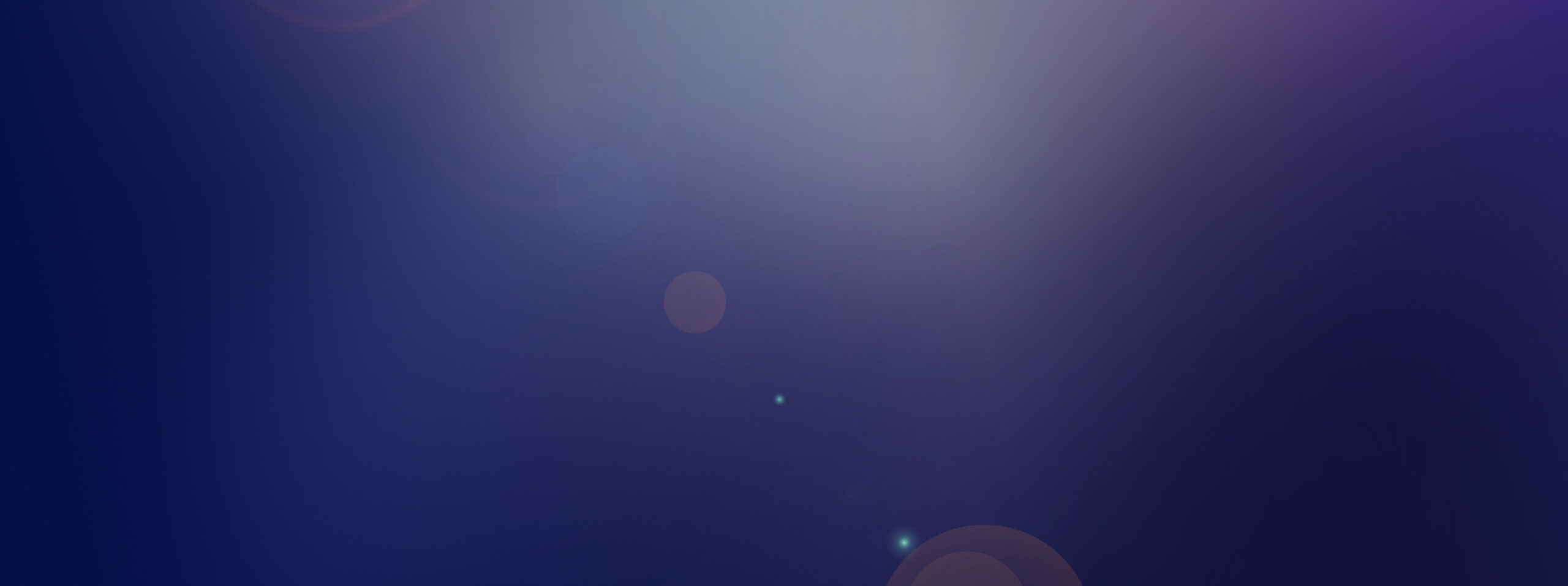Extreme Branding: Donna Goldsmith – SVP of Tough Mudder Inc.
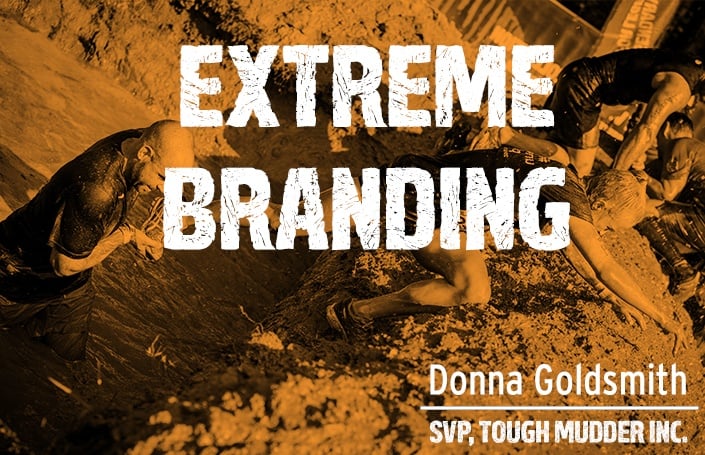
In this episode, we examine the role of licensing and consumer products in brand growth. Donna Goldsmith, SVP of Consumer Products, Partnerships and International Event Licensing at Tough Mudder, reviews lessons learned across brands including the NBA and WWE. If you like our podcast, please subscribe and leave us a rating!
Podcast: Download Subscribe: iTunes | RSSTranscription
Donna Goldsmith: I think it’s just what your brand stands for. It makes all the difference.
Bill Gullan: Greetings, one and all. This is Real-World Branding. I’m Bill Gullan, President of Finch Brands, a premier boutique branding agency. A treat for you today, as Executive Producer, Steve and I, sojourned up to Brooklyn and sat down with Donna Goldsmith, the Senior Vice President of Consumer Products and Partnership Marketing at Tough Mudder in their super-cool Brooklyn offices. Donna is a legend in licensing and consumer products, particularly for experiential and sort of sports-driven concepts.
As she’ll tell you, she did a decade at the NBA during a time of explosive growth, then did a decade or slightly more at World Wrestling Entertainment, also during a growth period, particularly on the side of the business that she was managing. Then, through some of her consulting work, arrived at Tough Mudder, not knowing really what to find, and she’ll tell you about what she has found, which is an amazing, only 6 years old, but a lifestyle, high energy, connected brand concept that she will no doubt lead to incredible heights, above, if possible, those they’ve already reached in their first 6 years of growth. Enjoy Donna Goldsmith of Tough Mudder.
We are here in the bad-ass Brooklyn headquarters of Tough Mudder with Donna Goldsmith, who’s the SVP of Consumer Products and Partnership Marketing here, a great get for the Real-World Branding podcast, as you all will hear. Thank you for joining us.
Donna Goldsmith: Thanks for having me today.
Bill: It could not be more of a pleasure for us. Your background across different brands and entertainment properties, athletic properties everybody would know, could you take us just a little bit through it, a quick twirl through some of the stops along the way, and we’ll start there?
Donna: Sure, sure. That’d be great. You know, it’s funny. I’ve been working for a very long time, and now as you know I’m working for Tough Mudder, the obstacle challenge and personal accomplishment brand, and we’re innovative, and we can talk about all those things in a second. How I got here was right out of college I had a Liberal Arts degree from a state university in New York, and it wasn’t in accounting, it wasn’t in the new field at the time of computer sciences, and thought, ‘God, I’ve got to get my first job.’
I could type like a speed demon, and as a result, back then there was no keyboarding classes, there were no computers. Then I got my first job at Revlon in Cosmetic Marketing for the cosmetic giant, and I got my job as an assistant, but quickly moved through the ranks there, as I was willing to do almost anything to start. Left there after 5 years as an Assistant Brand Manager, so I was on the marketing path at that point, and was pulled away from someone who was in cosmetics and had moved to the company Swatch Watch, who was in, as you know, the fashion watch business, and worked there on everything that wasn’t watches. You say, ‘What else could you have worked on there?’
They had new business development in something they called the Swatch Telephone, which was brand new. I actually did sales. I had never done sales before, and went out to Macy’s West on the west coast, sold here. Swatch Telephone, did consumer products for them that weren’t watches, such as gift bags. Remember you would go to the counter and you’d buy something for X dollars, you’d get something. I sourced out bags for them and chachkies and novelties in the Far East, which was again, a terrific experience, something I had never done before.
I was willing to do almost anything. From there, stayed about 2 1/2 years, enjoyed it very much, it was very much an autonomous environment. My bosses were based in Switzerland, so it was very hands-off, but I was ready to get into something a little bit different where I could learn more on a day-to-day basis from people who were on the ground with me and could mentor and teach me. As a result, I applied for a job I saw in the New York Times, which said, ‘Major League sports seeking packaged goods marketer.’
Bill: Yeah, back then there were newspapers and they had jobs in them. It was amazing.
Donna: Yes, there were newspapers and people read them, and they had newsprint on their hands.
Bill: Carried them with them, and right. It was pretty cool.
Donna: That’s a really good point because I didn’t think of that as I was saying that. Applied for this job, and apparently when I did get a call, and I didn’t know who I was applying for. I was not a sports fan, but it seemed interesting. I got a call soon thereafter from the National Basketball Association, from a gentleman by the name of Bill Jemas, who is still a friend of mine, works for 2K Sports, and said, ‘We’d really like to meet you. We’ve gotten hundreds and hundreds of resumes, but yours is different. Most of the people said, ‘Yo, I know sports. Hire me,’ and you had Revlon and you had Swatch Watch and we thought your background was interesting.’
Went into the NBA wide-eyed, with a cheat sheet in one pocket from my dad, a cheat sheet in the other pocket from my boyfriend at the time, telling me, ‘Okay, the Pistons are in … There’s a championship at the end of the season, Donna, and the Pistons are in it,’ and giving me all this information, because I knew nothing about sports. Walked into these gorgeous offices at the NBA, with pictures of Magic and Michael, and Larry Bird, and a bunch of people. I didn’t know who they were, and was interviewed by this gentleman who was starting a new business development department, and started off the interview by showing me a poster with hundreds of players on it, and said, ‘Do you know who this is?’ Points, and of course I didn’t. ‘Do you know who this is?’ Must have gone 5 deep before I said, ‘Oh, yeah. Michael Jordan. Duh.’
Of course I knew who Michael Jordan was, and ultimately he said, ‘Look, I’m kidding you a little bit. We’re not hiring you for your sports knowledge. We’re hiring you because you have a good background and I’m offering you this job,’ after really a relatively short interview, had me meet with a few other people. I took the job, and kicked off with this gentleman, Bill Jemas, who was an attorney by profession, but was in the marketing, licensing, consumer goods area. Started off their trading card business, and the NBA had never had really a trading card business in consecutive years. Somebody had come in and gone out, but we started a business, it grew exponentially. It was the time when people were saying, ‘I’m going to put these trading cards in my garage, and I’m going to send my son to college.’
Bill: Yeah, sure. Was this like Topps, Fleer, Donruss? Those were the ones.
Donna: You’ve got it. You’ve got it. We had licensed the first cards with Fleer, who at the time …
Bill: Three at a time? Were those the packs that had 3?
Donna: They had anywhere from 3 to 5. They had collectible pieces of the uniforms in there. We started with all these different promotional ideas that had never been done at the NBA, and the NBA, in a couple years, in royalties only, which of course is a piece of net sales that was paid back to the league, made $45 million in trading cards.
Bill: Wow. Awesome.
Donna: I wondered why David Stern was so happy with me at the time. I didn’t realize that my team and I were bringing in big bucks, and was at the league during the best time you can imagine. I said it was Michael, Larry, Magic. It was the time of the Dream Team, that Karl Malone and John Stockton, and Patrick Ewing going to the Olympics for the first time. It was an incredible experience.
I was so lucky, and so blessed to be at this place that was growing in leaps and bounds, that David Stern was turning into just this mega-brand. The teams, the league, the sponsorships from the Coca-Cola brand to General Mills, and it was relationships that were just growing and growing. The business was doing so well, and the consumer products business was doing so well. I started in trading cards. I ended up working with Spalding, with Huffy, and with Nike, and companies that of course had brand names that everybody knew in your home.
The business was growing exponentially domestically and then globally. I was so lucky to be there during that time, and never thought I’d leave until I got a call 10 years in. By this time, I’m a Vice President there, asking me if I knew anyone, or maybe I would consider a job …
Bill: That’s the old headhunter trick, right?
Donna: It was the headhunter trick, working for a job in Stanford, Connecticut, and right away I knew. It was for an entertainment sports company. Now, at the time NBC was not up there. There was nobody up there but WWE, and I said, ‘I will not work for that crazy …’ WWF at the time. ‘I am not working for the McMahons. I don’t like wrestling. As a matter of fact, I don’t even know what wrestling is,’ I would say to them. ‘Come in and talk to us.’ I went in and talked to the recruiter just for curiosity’s sake. I had been at the NBA 10-plus years. They said, ‘Please go up, meet our people. Meet Linda McMahon. She is wonderful. I think you’ll really like her. You two will have a lot to talk about.’
Went up to Stanford, schlepped up on the train, and thinking, ‘How could I ever do this? It’s a commute. I don’t want to commute. I live around the corner from the NBA.’ Met Linda and she was incredible: smart, passionate, a good listener, which you don’t find a lot during an interview process. Wanted to know about me, wanted to know about my accolades during my time at the NBA, telling me the challenges that WWF, again at the time, what I could bring to the organization, and she really did wow me. I never thought I would leave the NBA, and again, long story short, after talking to Linda, after meeting Vince, I think …
Bill: I was going to say you had to meet her husband.
Donna: I only met him briefly. She was running the business part of the show at the time there. I say the show, I mean …
Bill: Yeah, right. The CEO title, right.
Donna: She had the CEO. I met Vince, I think at the TV studio. I can’t even remember. It was very brief. He said, ‘Linda loves you. We’d love to bring you on board.’ I said, ‘I need to think about it,’ and I decided to jump feet first in, and so after 10-plus years, I left the NBA. I started commuting up to Stanford, Connecticut. The first 6 months were torture. I didn’t know what I was getting myself into.
Bill: Right. Titan Tower.
Donna: The Titan Tower, the flag is out there. Bought a car, was commuting from Manhattan, thought I’d stay a good couple years and then call it a day, and I was there 10 1/2 years.
Bill: Wow.
Donna: I grew their consumer products business in leaps and bounds. They gave me the reins. They were wonderful to me. ‘Bring in the people you want. You have done such a great job at the NBA. We’re happy to give you, again, give you the reins. What do you need to do here?’ I said, ‘You need some different people on your staff. You need to grow certain areas. You need to curtail in some areas.’
The job was much bigger than the NBA, from licensing to merchandising, because they sold a ton of products at their venues and on web to publishing. They had a new publishing business and they had a magazine business, to the video game and video business, which I had not done at the NBA. They handed it over to me.
We grew the business, because I did hire a great team. My team and I, grew the business 250% over the course of those years that I was in consumer products there. We grew the international business. It had been very small, but what happened to WWE, you bring the TV products on the ground in Italy, in Spain, in France. You follow it up with bringing events there, and you introduce a consumer products business, and it was a slam dunk.
Bill: Sure. Action figures, video games, and the whole nine, right?
Donna: All the products, the whole nine yards, and we established relationships with retailers on the ground, the Tescos in the UK, to the Galeries Lafayette in France. We had a great business, and it was growing all over the world. Growing that business to the heights it grew, they promoted me from SVP to EVP, and then ultimately Vince asked me to take over the reins as Chief Operating Officer, which I had never expected to go in there and do that. That was in about 2008. I had been there 7 1/2 years, asked me to take over that role.
I had trepidation because Vince had gone through 4 or 5 COOs in a short amount of time, and why was I any different? But I had been there, and I knew the brands, and I knew the people, and I knew the culture and that made a difference. I took the role, and during that time I was named 2nd most powerful woman in sports by Forbes, which is such an accolade, and I was so proud of what I accomplished there working with Vince. Linda was gone by that point, and Shane and Stephanie. After 2 1/2 years in that role, it was time to move on and do my own thing. I worked 24/7 there. You know how they work there.
Bill: Yeah, they do.
Donna: I did not want to do that anymore, and to some degree I will say my position was marginalized. Vince likes to do things like Vince likes to do them, and I understand that. They treated me well for 10 1/2 years. I was ready to move on. Left WWE, did the consultancy thing for a while, worked on the Super Bowl that came to New York/New Jersey, worked for ThinkGeek for 6 months down in Virginia, as you guys know very well. Then came to Tough Mudder as a consultant, and after a couple of months as a consultant they asked me to stay on, and now I manage, as you mentioned, Consumer Products and Partnerships, and actually just the other day, I also took on event licensing for our global entrants outside the United States.
Bill: Terrific. What a story.
Donna: I’m exhausted telling you about it.
Bill: There’s so much to dig into, so I’m going to try to keep it straight and respect your time. NBA, WWE, both, as noted, during times of considerable growth and change for both organizations. I think, interestingly, if I have my dates right, that was a tough time for WWE from a ratings perspective. The acquisition, WCW happened, the so-called attitude era was over or ending.
Donna: Yes.
Bill: Then there were challenges in the Pay-Per-View side, etc. but as you say, there were big growth in consumer products and global and everything else. How would you compare and contrast NBA and WWE? Strong executives with very different personal styles I guess.
Donna: Oh my goodness. Yeah.
Bill: Any great stories or differences, or just reflecting on that 20-year period?
Donna: It’s a question that I’ve been asked before. You worked for David Stern. You worked for Vince McMahon. I’m not sure either one would like to know that they’re both very similar, because I think they’re both different. David is very cerebral. Vince is one of the most creative people you will ever meet in your life, but they’re so powerful, they’re very opinionated, they like to run the business the way they like to run the business, but they are respectful of the people that work for them and for what they bring to the table. I will say both of them ran companies in not such a different fashion.
On the other hand, if you do screw up and then the rare screw-up, you will hear it from both of them. I remember one particular time, I always had what I call my J.I.C. folder. Okay, what the heck is a J.I.C. folder? The Just in Case folder. You never go to a meeting ill-prepared. There was one meeting I went to with David Stern. I will never forget that I was ill-prepared, and I heard it, and I got my tushy kicked. There was one meeting. There were probably a couple more with Vince, because I was in a more senior position at that time, so there was more of a relationship there than with David where I was a little bit lower down the post.
There were one or a couple of meetings with Vince where things did not go as smoothly as I would hope, I’ll leave it at that, and I got my butt kicked there, too. Again, the powerfulness of both of them was very evident in day-to-day business, but I do have to repeat that they were both very respectful of what I would bring to the table.
The organizations generally are different only because the product is different. The way the businesses were run is not all that different. You’re talking promoting 2 brands that were probably top of their game, ultimately. Ratings would come and go, especially, WWE is very tied to the talent that they have.
You get The Rock, who’s been in and out over the many years, but if there’s a sort of a lull in that top talent, you’ll find the ratings would have gone down a bit, but they’ve done such a great job of building superstars that they’d go back up. The NBA’s a little bit different, because you want to have your great teams in the championship, and if you have that, you’re pretty much assured of great ratings, but it’s a bigger organization, and it attracts, I would say, a larger audience just because the demos are greater. Both have done an unbelievable job internationally. I would say WWE, since I’m there, has grown exponentially on the international front.
The NBA has been in and out of countries since well before I was there. The McDonald’s Open was something we started way back when to bring the sport internationally, and now in China. Their business is big all over the world, so again, both businesses are very strong internationally. Stories. Do I have stories? I’d probably have to kill you if I told you any of my stories.
Bill: True enough.
Donna: I do have some fun stories. When I was at the NBA, I was on the committee to lead the team in designing the WNBA ball. You’ll recognize this, sort of the orange and oatmeal colored ball.
Bill: Yeah sure. Yeah, the color. Yeah, right. Rebecca Lobo, I remember that.
Donna: Right. Right. The league is now, I think it just celebrated its 20th anniversary, and when we were developing the ball we said, ‘We need the ball to be a little bit different than the NBA ball,’ but things you have to think about when you’re developing a product that’s going to be seen on television is that it has to be seen from far, from close, by the people that are watching the game, by viewing the game on television, and the people that are in the arena.
We developed probably 10 to 15 different balls, and we did a test on the floor of Madison Square Garden one morning, 20 years ago, whatever, prior to 20 years ago. The balls had been painted by a creative company. The inside guys designed it, but we had to have them paint it, and they had to dry. I had the balls delivered to my house, if you can imagine, by someone who could paint these balls. Sounds crazy. On a Sunday morning before the Knicks were playing, we went out to the Garden to do a test. We had the broadcast people with us, we had people in the stands that were our fans.
Bill: Right, pretending. Right.
Donna: We were passing and using these narrowed down to what, 6 or 7 balls. Well, what we didn’t realize is the paint wasn’t 100% dry on the balls, and we were making marks on the floor of the Garden before the game. I had people from the Garden’s, operations people, chasing me literally. ‘Donna, your team …’ Our team was a bunch of people from the NBA and WNBA … ‘Cannot bounce the balls on the floor. You’re ruining the floor.’
We had to pass to each other, but of course, we’d sneak in a dribble now and then because you needed to see and feel it as if it was a real game. Ultimately we filmed all this, we brought it back to David Stern, Russ Granik, who was working with David at the time, and Val Ackerman, who was the WNBA commissioner. We made our recommendation on the ball and we showed the video footage, and it was that ball that was chosen.
Bill: Super cool.
Donna: It was a time I’ll never forget because it was really fun, and they just did a piece in SportsBusiness Journal on the 20th anniversary, and talked about this. I said, ‘Where is my name in here? Because I led that charge on that thing.’
It was fun, and it was crazy, but I’m still proud when I see that ball. That’s a funny NBA/WNBA story. On WWE side, there are millions of them, but one that I can share is always the writers would write right up to the television program, as I’m sure you know, because it was live, and they did an amazing job at reacting to how consumers, fans, audience, people in the arenas, would react to the storylines. If they felt a storyline was going downhill because it wasn’t getting a positive or negative reaction, it was sort of just complacent …
Bill: That’s the worst. Right.
Donna: It’s the worst. They would change the storyline up, so there was a particular character, Jericho, who’s actually still in and out.
Bill: Still there.
Donna: He was wearing this silver shirt. Oh boy. He would wear it open, his chest would stick out. It was a silver shirt, and the shirt was getting a lot of positive reactions. My team and I, we were on the consumer products side, wanted to order the shirt to sell. We had to order it, but because it was a special fabric, and it wasn’t something we could get domestically, we ordered it from overseas, and we ordered a particular number. It was a fairly expensive shirt. On a Monday night, I was at home watching Raw, and all of a sudden I saw Jericho go to heel or bad guy. Bad guy stuff doesn’t sell.
I didn’t know Jericho was turning to a bad guy. He was so angry at whatever had transpired in this episode, he ripped his shirt off, he threw it on the floor, and all I could think of is, ‘Oh my God. I have 3,000 of those on the ocean coming to sell.’ Ultimately, I remember going to Vince and saying, ‘You changed the story. You changed the story.’ I can’t remember what we did, if we brought it back in, because he’d usually work with us on changing things up, but it was funny, things we didn’t expect, and I never certainly would have encountered anything like that at the NBA. Michael Jordan’s not ripping up a jersey.
Bill: Karl Malone turns heel! Right.
Donna: Funny, funny, it’s very different situations that would transpire there.
Bill: Amazing. Tell us a little bit more about, for those in our audience who don’t know, a little bit more about Tough Mudder: its history, its present and its future.
Donna: Great. Thank you. Well, it was founded by Will Dean, and his … I think it was his high school buddy, Guy Livingstone, founded only 6 short years ago.
Bill: That’s amazing.
Donna: The first event they advertised via Facebook only, social media. They thought there were going to be 500 people. There were 5,000 people there.
Bill: Wow.
Donna: Since then, in 2016, we’ll have more than 120 events, 2 million plus global participants to date. We raise money. Charity is so important to us, and we’ve raised over $12 million for various charities worldwide. All walks of life, athletic abilities have done the Tough Mudder. It’s epic challenges and it is a grueling course, but it’s a shared social experience, and it encourages camaraderie and teamwork. We even laugh, my people always remind me that more than 5,000 people have Tough Mudder logos permanently tattooed on their body. If you guys want to do this before you leave, I can set it up for you.
Bill: Nice. Yeah, right. There’s a room in the back or whatever.
Donna: Yeah, right. We have our tattoo room. It’s not a race. It’s a challenge, which makes us very different than other brands in this space, and that’s what our success is all about, because we bring people together to achieve these accomplishments and to overcome challenges. You can’t really do a Tough Mudder without being part of a team.
Our brand pillars are teamwork, fun – you got to have fun in this thing. You got to have grit, determination, it’s courage, and again, as I said, it’s personal accomplishment. We love what the brand stands for.
Our sponsor partners love that this is what we’re about. We reach millennials and beyond, and that’s why people want to work with us and be in business with us, and why people want to do a Tough Mudder, and do a Mini Mudder. We have a kids’ version that’s a mile long, and the little ones will do it, because they want to be like mom and dad, and then we have this World’s Toughest Mudder once a year, that is our one competitive event, so something for everyone, and stands for accomplishment, teamwork, things that are really important to us.
Bill: Getting a little dirty, too.
Donna: Getting a little muddy.
Bill: Generally speaking, key principles of your career, taking experience-based or athletic brands, monetizing them, expanding them geographically and categorically. What are the key principles, from your perspective, that make for great licensing or consumer product programs for brands like NBA, WWE, and now Tough Mudder?
Donna: Well, first of all, you need to have a brand, and I’ve been so lucky to be with brands that resonate with the audience. When I say audience, obviously Tough Mudder at this point is not a television brand, but it’s a lifestyle brand.
Bill: Sure. No question.
Donna: People know it, and they know it more than any of our competitors. They recognize it. They see the logo. I tell people I work here, and they know the brand, which at the NBA, yes, of course they knew the brand. The WWE, of course they knew the brand. We were televised all over the world, but this brand, in only 6 years … Tough Mudder is only in our 6th year and has done incredible things. We have had more than 2 million people doing our events. We are launching internationally now. This year we’ll have our first events in Shanghai and Dubai. We had events in Ireland. We do our own events in the United Kingdom and in Germany, but we also license the events. We did our first event in Mexico, but again, only 6 years old.
Bill: That’s amazing. Yeah.
Donna: To have the kind of recognition, because of the cool factor, and I think it’s just what your brand stands for. It makes all the difference. This brand is not about competitiveness. It’s about accomplishment. It’s about personal satisfaction. It’s all about teamwork. It’s about experiences. This Tough Mudder brand is about accomplishing extraordinary experiences, but you don’t have to be the most fit person in the world. You don’t have to be young. We have people that do this that are heavy-set, that want to tell a story.
Bill: This is sounding better for me, by the way, as you keep talking.
Donna: By the way, me too. Me too. I have to get out there and do it.
Bill: Heavy-set, old, check, check on my side.
Donna: Okay, you’re not old and you’re not heavy-set. You should see.
Bill: Thank you for that.
Donna: It’s life changing experiences, and as a result, it’s such a great story for us to tell. Are we going to be the brand that people know like the NBA? We’re not there yet, but I think with all the things we have lined up for this brand. I’m now working, as I mentioned to you, on the international brand. We’re working with IMG, one of the biggest sports entertainment companies in the world, and they’re the ones that are conducting the events in Dubai and in Shanghai. We’re looking at Korea for next year. We’re looking at Japan. We’re looking at Hong Kong.
This brand is going to be a global phenomenon. I can’t divulge too much information right now, but we are going to have a TV presence for the first time, so it’s going to take us beyond where we are now, and I think the brands have to mean something. This brand means something different than the NBA and WWE, which are entertainment, which are sports. You want to watch. You didn’t want people participating in WWE type events, because there was always a warning.
Bill: Right, no. Not in the backyard. Right.
Donna: Right. NBA, yes, great. Get grassroots event going, but this brand that I’m with now is something that is more about life changing experiences, and it feels so good to be able to talk to that. We’ve had people do this that are in wheelchairs. I can send you some footage that will just boggle your mind.
Bill: Wow. Yeah, I’d love it. That’s amazing.
Donna: I’m proud to be here and to represent something a little bit different, but still in that sort of that branding sports-esque lifestyle piece. It’s nice.
Bill: Well, as we said, the NBA was about teams but also about superstars, your Jordans, and WWE is a superstar factory. The superstars here would seem to be our brothers and sisters, ourselves, people we know.
Donna: That’s right.
Bill: This is a brand, as you say, without massive TV clearance but the sheer voice on social media when people complete these is amazing, and to grow in 6 years in grassroots ways is a testament to all this brand means and has within it.
Donna: It is. It’s amazing. I think they have 5 million Facebook fans. It’s 6 years. Sometimes I forget that we’re somewhat of a startup. I guess I wouldn’t say we’re a baby anymore. It’s more like a high school kid or a middle school kid, but the stuff that has been done here under Will Dean, who is the founder, is incredible. I will say they started off here with just a few people and a few young people that were going to kick this thing off and figure it out. Will’s first event, Will and his business partner at the time, promoted it only on Facebook. They expected to get 500 people. They were all set for an event with 500 people. 5,000 people showed up to that first event.
Bill: That’s amazing.
Donna: He said, ‘I think we have something here. This could be something greater.’ Here it is, 6 years in now, where they’ve hired more senior people to help lead this thing. Our CMO comes from Club Med. I almost forgot, comes from the Club Med world, which is a serious marketing brand.
Bill: Oh, nice. Great brand. I’m going to be there in a week, Florida.
Donna: Oh. Well, enjoy.
Bill: Tell him.
Donna: I will tell him. We have people here that are … One of our senior people, Adam Slutsky, who’s the President, was one of the original founders of Moviefone, so these are people that come from serious backgrounds, that aren’t now kids that are joining because this is a cool brand. We think it’s a cool brand, but we’ve done other things, and we can bring more … When I say seriousness, I don’t talk to the brand as much as to the business practices around it. It’s just been a terrific experience for me, and fun, too. A lot of fun.
Bill: It has to be. In terms of what comes next, and I know you’re constrained from telling us certain things, but this seems to be tailor-made for some of the things you’ve done in your career elsewhere, consumer products and partnerships. It seems to be tailor-made as you allude, in a very tempting way, toward a bigger entertainment presence. Similar templates, in terms of how this grows, based on what you’ve done elsewhere?
Donna: I think there is some similarity. I think the one thing we have to remember with this brand is at its heart it’s always going to be an event series. What do we do to take this event series and take it to the next level, and take more of that lifestyle piece, and bring it to more people who don’t necessarily know of it or want to do something like this? Maybe they haven’t heard of this in Shanghai. How do we modify it so that the cultural norms there, that it makes sense? Are they used to going 2 hours, because we need 400 acres, at least, so they have to travel to get to these events. We have people that stay the whole weekend.
How do we communicate that in Shanghai, in Dubai, in Ireland, in Mexico, to have it make sense, but that they take away the same feeling and the same accomplishment, and the same teamwork? Those are things we work with local partners so that we can do that. We do have one event annually, the World’s Toughest Mudder, which has taken place in Vegas for the last couple of years. It’s 100 miles. It’s a loop of 5 miles with serious challenges. There you have to be fit.
Last year’s winner I think did 95 miles, and that is our one event that is a challenge, and how do we take that and make elements of it throughout the year? Because it’s a challenge and it is a competition. It’s the one competition. Does a competition make sense to put on television? Perhaps. We’re looking at that piece of it a little bit differently. How do we continue to tell our stories? We had one gentleman that lost his child at Newtown, in the shooting. The only way he and his wife sort of got themselves together again was to start to train and to get people to donate against their running in a Tough Mudder.
There are so many personal stories about running, and some of them aren’t as heartbreaking and God, you can’t even think about what they went through, but there are people that, like I mentioned before, that are in wheelchairs or that want to lose weight and try to train for this 6 months before the event. We’ll help them do that. We’ll give them a path for training and we have ambassadors. Merrell is our presenting sponsor. There are ambassadors for Merrell and for us at Tough Mudder that help people get into shape, and we’ll do different things on-site or prior to being on-site to get people prepared to do this if they’re not. On the other hand, we get people that sign up 2 weeks before and say, ‘I’m going to give this a shot.’
Bill: The hell with it.
Donna: It’s very, very interesting, and a fun business model, and I think there’s room for consumer products, and we’re just getting into this, but we sell our products at venue and on the website. There’s more that we can do there, and the sponsor partners are big sponsors. Like I said, Merrell. We have Cellucor, who is our protein supplement company that is a relatively new company also and says, ‘Let’s work together. Your demos are great. Your millennials are great. We want to be in business with you.’ Old Spice is working with us, a Proctor & Gamble company that is relaunching their products and says, ‘Hey, we could relaunch with you and do a lot because you hit people that we want to hit every day, and you’ve got them all in one place when they come to your events.’
Bill: They’re a little irreverent, too. Yeah.
Donna: They are totally irreverent. We do a lot of content. It’s all about the content, and we do some fun stuff with them. Those sort of elements or veins that run through NBA, WWE, those are similar to what we do here in a little bit of a different fashion.
Bill: Sure. We can’t wait to see what happens you mentioned, and we’re sitting in this fishbowl conference room watching all these 20-something fit people walk around behind us. As you’ve come through NBA, WWE, and certainly here, you mentioned some of the differences in culture and leadership. Are there any particular approaches that are important to you as you’re building teams and driving culture, and taking the enthusiasm that exists here and professionalizing it? I don’t mean that negatively, but for the next chapter of growth and the next level of growth. What are some important cultural philosophies of yours?
Donna: For me, it’s all about being a leader, but giving everybody the credit they deserve. I say I’m part of the team. I lead their team of course, but when I meet with clients for the first time, it’s all about this is so and so who works with me. I will never say, ‘works for me.’ We are so much of a team here, which again, is one of the key tenets. It’s a core area of Tough Mudder. It is something that, it’s all about teamwork, and I will say this is a young organization, but I am so impressed with the passion and the intelligence and the dedication of the people here. Those are the things that are important to me when I build teams.
You want to have people that want to be part of this thing that aren’t just, not a stepping stone. It’s a lifestyle for them, and there are so many young people now that I think they feel things are owed to them, and I will say that is not how it is here at Tough Mudder. These people really want to work here to make a difference. To me, when you can’t make a difference anymore, you shouldn’t be someplace, and I say that about myself as well, and about everything I do in day-to-day life in any business.
I want to be a good leader for them, but I want them to be able to do things on their own, to be challenged, to be able to take this and learn from it and grow, and that’s what it’s been about for me in every place I’ve been. Again, I’m very lucky to have a team like that here. I brought … There’s a woman who works with me here who worked for me for 15 years at WWE, and she’s just fabulous. She’s not one of the 20-somethings. She’s not as old as I am, but she brings those core themes again, of teamwork, of let’s accomplish this thing together, which again, fit perfectly in the Tough Mudder world. It’s really important to let them grow and fly on their own, and that’s always been something that’s key to me.
Bill: Cool. As we close, and thank you so much for your insight and your time. I know we were late, because we went to the old office, but anyway, long story.
Donna: Yes. We’ll have to give you guys GPS or something.
Bill: Yes, exactly. Steve, our Executive Producer and cartographer …
Donna: It’s Steve’s fault.
Bill: Yeah. Well, Steve, you know.
Donna: He’s young and he can work with …
Bill: He’s young. He’ll figure it out. He never grew up with maps.
Donna: That’s right.
Bill: I think you got into it a little bit, but thinking back on your career path, and I’m sure, I think a portion of our listener base are folks who are early on and are seeking inspiration from hearing from brand and business builders. For those who have been inspired by what they’ve heard, which I’m sure is a ton of folks in our audience, are there a couple of … Starting out in the Liberal Arts, as did I, falling in love with this, broadly defined, though you have a slightly different focus than I do, but saying yes along the way, being persuadable … Other key touchstones as you think about your own growth as a professional, your own career, words of wisdom for those who are just embarking on their own path?
Donna: Yeah, that’s a question that I think my answer has changed over the years. My early answer, and still relevant, is do anything that you’re asked to do. Pack boxes, type, okay, everybody types now, but make copies. Do whatever is needed in a particular position, and I think that’s the same. What’s different now, my response is look people in the eye. Texting is not acceptable.
Bill: Yeah, some of the basic stuff. Right.
Donna: It’s so different now. My niece is 24, and she’s a smart, passionate person, but sometimes I wonder if she texts just too much. People don’t have those interpersonal skills anymore, and I think it is hugely important to look people in the eye, to be responsible, to respond via email or via handwritten note. That’s different than what it was back in the day. I can’t believe I say back in the day.
Bill: Get off my lawn! Right?
Donna: Right. It is so different, but I think it’s really important. I think you have to use those networking skills. Don’t be shy to ask mom and dad who they know. Don’t be too proud. Don’t think you’re owed things. You have to make your own way, and it is so competitive out there now, and so use the relationships that you build through school or through after-school, or through people who know people. Show that you’re willing to do almost anything, and again, use those interpersonal skills.
Look people in the eye, and then as you get going, make sure you can still make a difference, because if you can’t make a difference anymore, you don’t want to be complacent. You want to be able to grow in your career. You want to be intelligent and you want to be passionate, but it needs to still get you excited every day. When you’re not excited to go into work anymore, and you have that stomachache or that pit in your stomach because you don’t want to go in on a Sunday night, you can’t sleep, you know that it’s time to make that change. Just be smart about everything you do.
You’re so lucky to be in certain experiences, be it at Tough Mudder, be it at entry level job at Macy’s or at Bloomingdale’s. Enjoy your experience, learn from it, and then if you have to move on, you move on. Be prepared, not everything is going to go smooth along the way. You will have setbacks, you will be fired, you will lose your job, and it’s okay. None of that makes you a bad person or stupid, or not equipped to do something different. It’s happened to all of us. I was let go. It’s happened, and it’s okay. I’m happy to talk about it.
Bill: Yeah. Right, understood. Well, thank you so much for your time and your insight. We are already watching this brand, but certainly watching where it goes from here. It is, as you say, some of the assets at Tough Mudder and whatnot are, in a short period of time, an amazing depth of feeling and incredible potential thereby. Donna Goldsmith, thank you.
Donna: Thank you for having me, guys. I’ve really had fun.
Bill: Donna Goldsmith, one of a kind, a leader and certainly a pioneer when it comes to building licensing and consumer products programs for various types of branded properties. We’re really grateful for her time and her insight, and it was truly a pleasure. Hope you all agree. Three ways as always to give us a boost here at Real World Branding. I’ll go fast. One is to subscribe so you do not miss a week, through the App Store of your choice.
Another is to leave a rating also, if we’ve deserved it, job well done. We’d appreciate comments, skin is thick. That ties in with the third one, which is let’s keep the dialog going on Twitter, ideas for future guests, future topics, and general commentary, good, bad and ugly about how we’re doing here. We want this to be as valuable and interesting for you all as it is for us. Signing off from the Cradle of Liberty.
